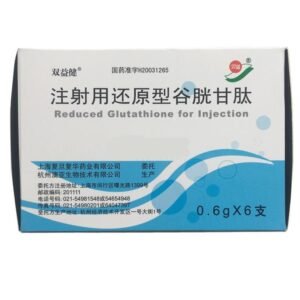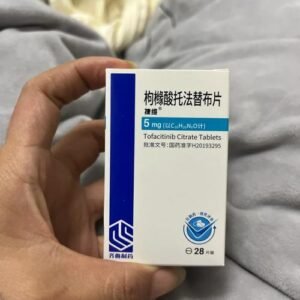Alogliptin
Functional Indications:
Used to treat type 2 diabetes. 1. Monotherapy: This product is used as an auxiliary treatment for diet control and exercise to improve blood sugar control in patients with type 2 diabetes. 2. Use in combination with metformin hydrochloride: When metformin hydrochloride alone cannot effectively control blood sugar, this product can be used in combination with metformin hydrochloride to improve blood sugar control in patients with type 2 diabetes on the basis of diet and exercise. 3. Important usage restrictions: Since the effectiveness against type 1 diabetes and diabetic ketoacidosis has not been determined, this product is not intended for use in patients with type 1 diabetes or diabetic ketoacidosis.
Dosage:
Alogliptin Benzoate Tablets: 1. Recommended dosage: The recommended dosage of this product is 25 mg once a day. This product can be taken with food or separately. 2. Patients with impaired renal function: (1) Patients with mild renal impairment (creatinine clearance: CrCl≥60mL/min) do not need to adjust the dose when using this product. (2) For patients with moderate renal impairment (creatinine clearance: 30≤CrCl<60mL/min), the dosage of this product is 12.5 mg once a day. (3) For patients with severe renal impairment (creatinine clearance: 15≤CrCl<30mL/min) or end-stage renal failure (ESRD) (CrCl<15mL/min or requiring hemodialysis), the dosage of this product is 6.25mg Once a day. Dialysis time does not need to be considered when using this product. This product has not been studied in patients receiving peritoneal dialysis. (4) Since the dosage of this product needs to be adjusted according to renal function, it is recommended to evaluate renal function before starting treatment and review it regularly.
Adverse reactions:
Alogliptin Benzoate Tablets: 1. Please refer to the instructions for details of common adverse reactions in foreign clinical experience. 2. Post-marketing experience: The adverse reactions identified during the post-marketing use of this product outside the United States came from spontaneous reports from people of unknown size. Therefore, it is impossible to accurately estimate their frequency of occurrence or determine the causal relationship with the medication. Hypersensitivity reactions include anaphylaxis, angioedema, rash, urticaria, and severe cutaneous adverse reactions; elevated liver enzymes; fulminant hepatic failure and acute pancreatitis.
Medication contraindications:
Patients with a history of serious allergic reactions to alogliptin products, including patients who have developed anaphylaxis, angioedema, or severe adverse skin reactions.
Share:
Products
Our offers
Health Classification
Let us work together to protect precious health




























